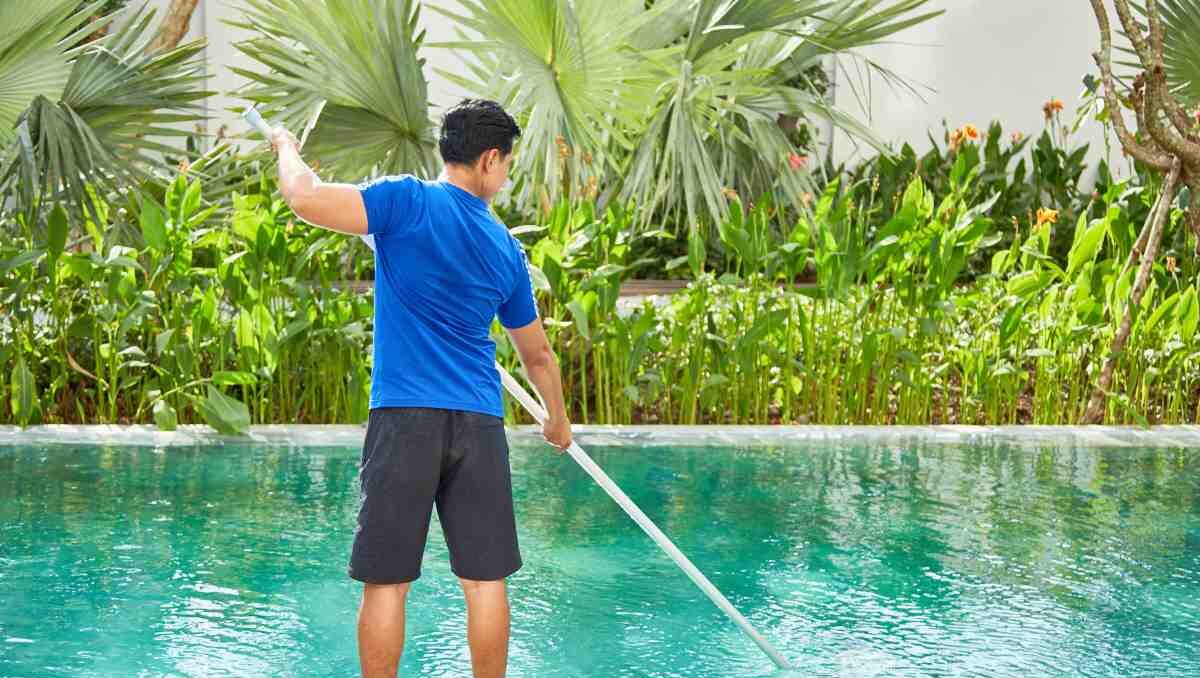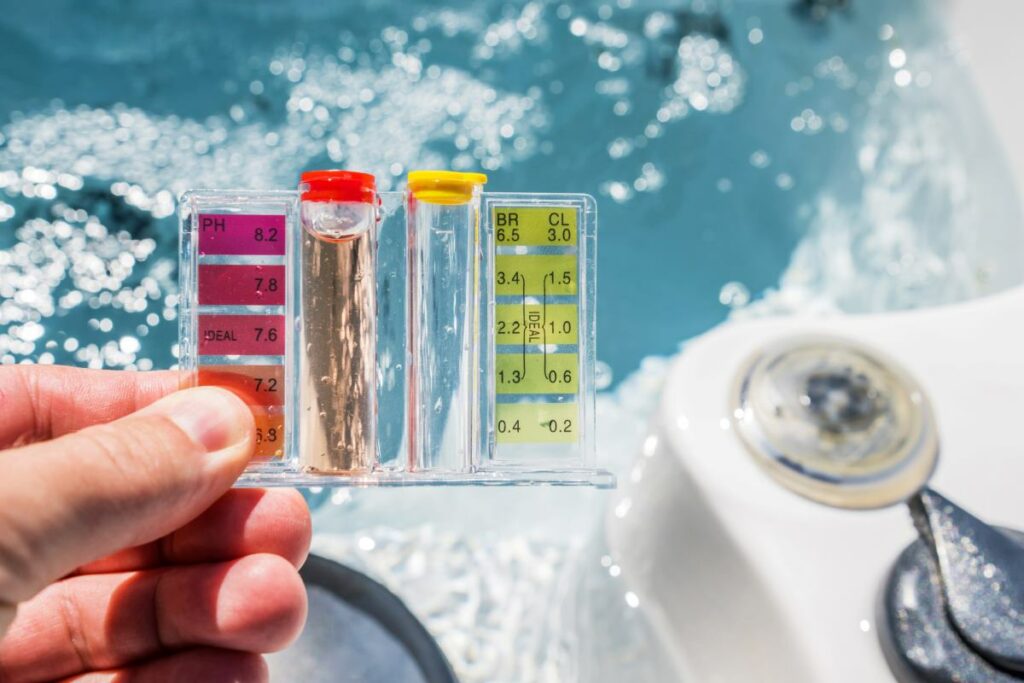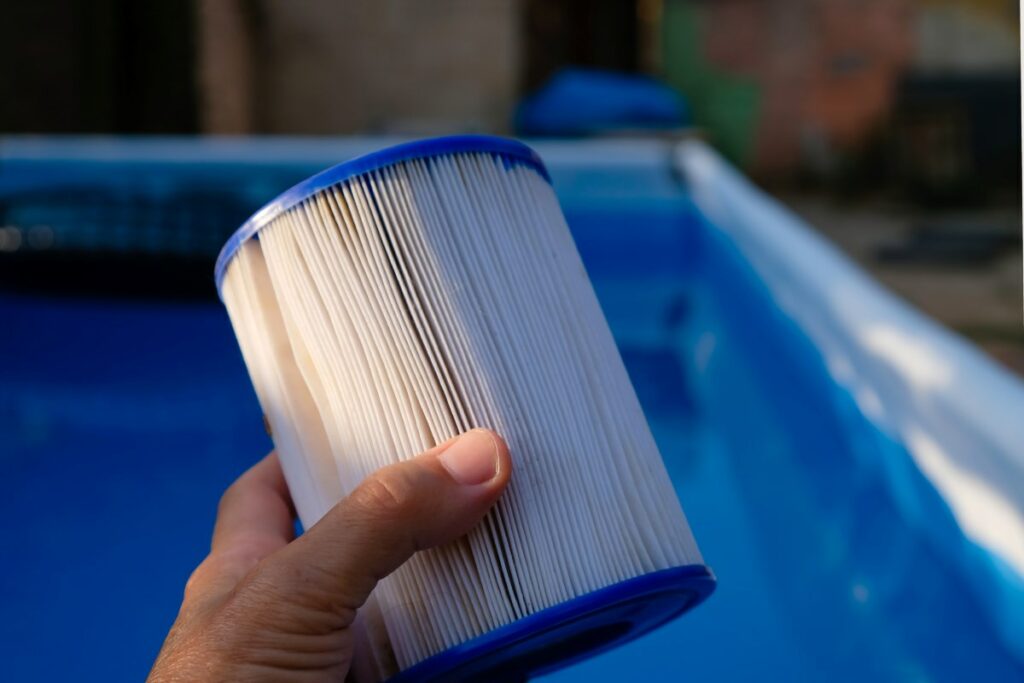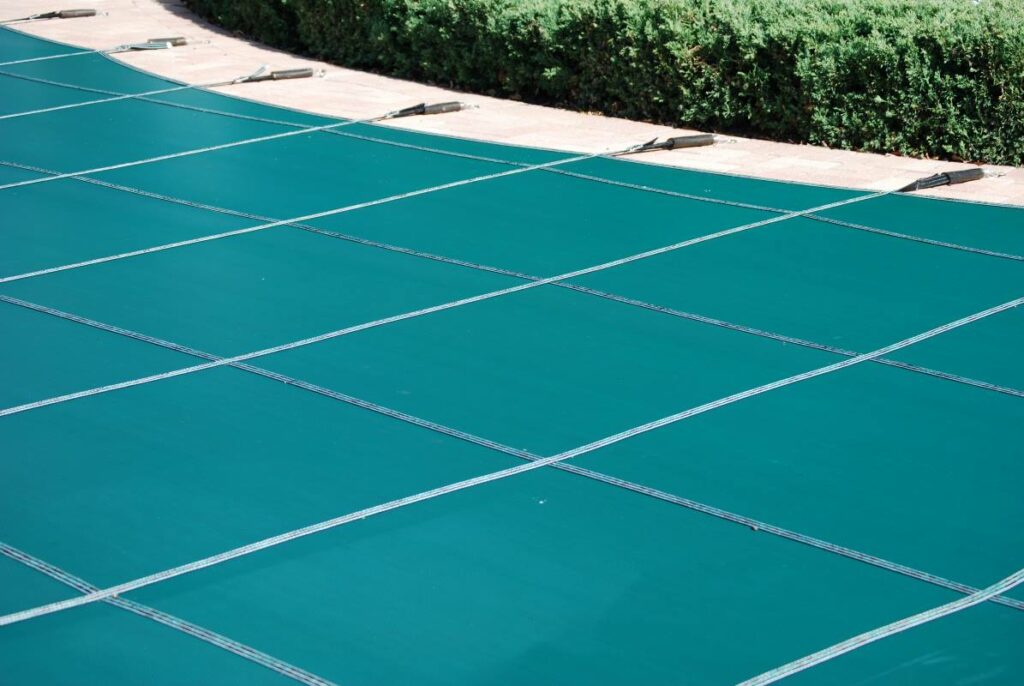
Pool Maintenance for Beginners: The Essentials
No matter what time of year it is, it’s important to keep your pool in tiptop shape so it’s ready to go whenever needed. If you are new to the pool ownership world, you probably have a lot of questions—and we can help!
This blog will go over several basic (but important) tips every pool owner should know for maintaining a clean, healthy pool throughout the swim season. We’ve broken these tasks down according to how often you should be performing and/or scheduling a pool service for them.
Daily: Skim Your Pool
One of the most obvious yet important steps to pool maintenance is regularly cleaning out dirt and other debris that may find its way into your pool. A buildup of dirt and debris can cause long-term damage to your pool, which can get costly.
If you’re performing pool maintenance on your own, make sure you clean your pool thoroughly from top to bottom. A pool skimmer net can help you tackle surface debris, while a pool vacuum can take care of debris at the bottom of the pool.
Daily: Run the Pool Pump
To keep your water circulating through the filter, aim to run your pool pump for around 10 to 12 hours per day during the spring and summer and at least six hours per day in the offseason. You can split these hours up throughout the day if needed.
However, if temperatures dip below freezing, you’ll need to run the pump continuously to ensure it doesn’t freeze.

Weekly: Test Pool Water and Adjust Chemicals
An essential part of keeping your pool safe and healthy year-round is keeping a good balance of pool chemicals. Testing and balancing your water will vary depending on the type of pool you have, specifically whether you have a chlorine pool, which requires chlorine and other chemicals, or a saltwater pool, which needs to maintain a consistent level of salt.
Keeping your pool chemicals balanced will prevent serious problems such as illness, irritation to eyes and skin, algae growth, and damage to your pool.
A pool water test kit can help you balance your pool water, but knowing how much chlorine and other chemicals to add can get complicated. Luckily, the experts at SPS PoolCare have the professional knowledge and training to help you test and adjust your water.
Biweekly or Weekly: Shock Your Pool Water
A part of keeping your pool water healthy is “shocking” your pool water. This means increasing the level of chemicals to sanitize the water and get rid of contaminants and algae growth.
Weekly: Monitor and Adjust Water Levels
When your pool is left uncovered in the sun, water will evaporate from the surface gradually. Make sure to regularly check the water levels to ensure they don’t dip below half the height of your skimmer. You can use a garden hose to add more water to your pool as needed.

Monthly or Every Few Months: Clean Your Pool Filter
Your pool filter is an essential part of your pool setup and keeps everything running smoothly by circulating and filtering your pool water. A well-working filter will make it easier for you to keep your pool clean.
How you’ll clean your filter depends on what sort of filter you have.
- A cartridge filter. Clean by rinsing with your garden hose.
- A sand filter. Perform a backwash.
- A DE (diatomaceous) filter. Perform a backwash, clean grills, and add more DE.
Annually: Chemically Clean Your Pool Filter or Replace It
Each year, preferably before opening or after closing your pool, be sure to thoroughly clean your DE or sand filter using a chemical cleaner. If you use a cartridge filter, it’s best to replace it when it’s past the use-by date or roughly every one or two years.

At the End of the Season: Properly Winterize Your Pool
Most pool owners opt to close up the pool after Labor Day weekend, but whenever you opt to close up the pool at summer’s end, make sure you take the proper winterization steps. Generally, this will include thoroughly cleaning, partially draining, and covering your pool.
To avoid extra costly repairs from freeze damage, SPS PoolCare highly recommends installing freeze protection equipment, such as a freeze guard. This equipment operates with a temperature sensor and activates the pool pump once the temperature gets low enough. With additional freeze protection, you can ensure your backyard paradise will be protected from a freeze.
Get Professional PoolCare From SPS
There’s no shame in getting professional assistance with your pool. Here at SPS PoolCare, we make owning your pool a joy. Select one of our convenient pool care locations to browse available services such as cleaning, repair, maintenance, and more. If you have any questions, feel free to contact your local SPS PoolCare branch!


